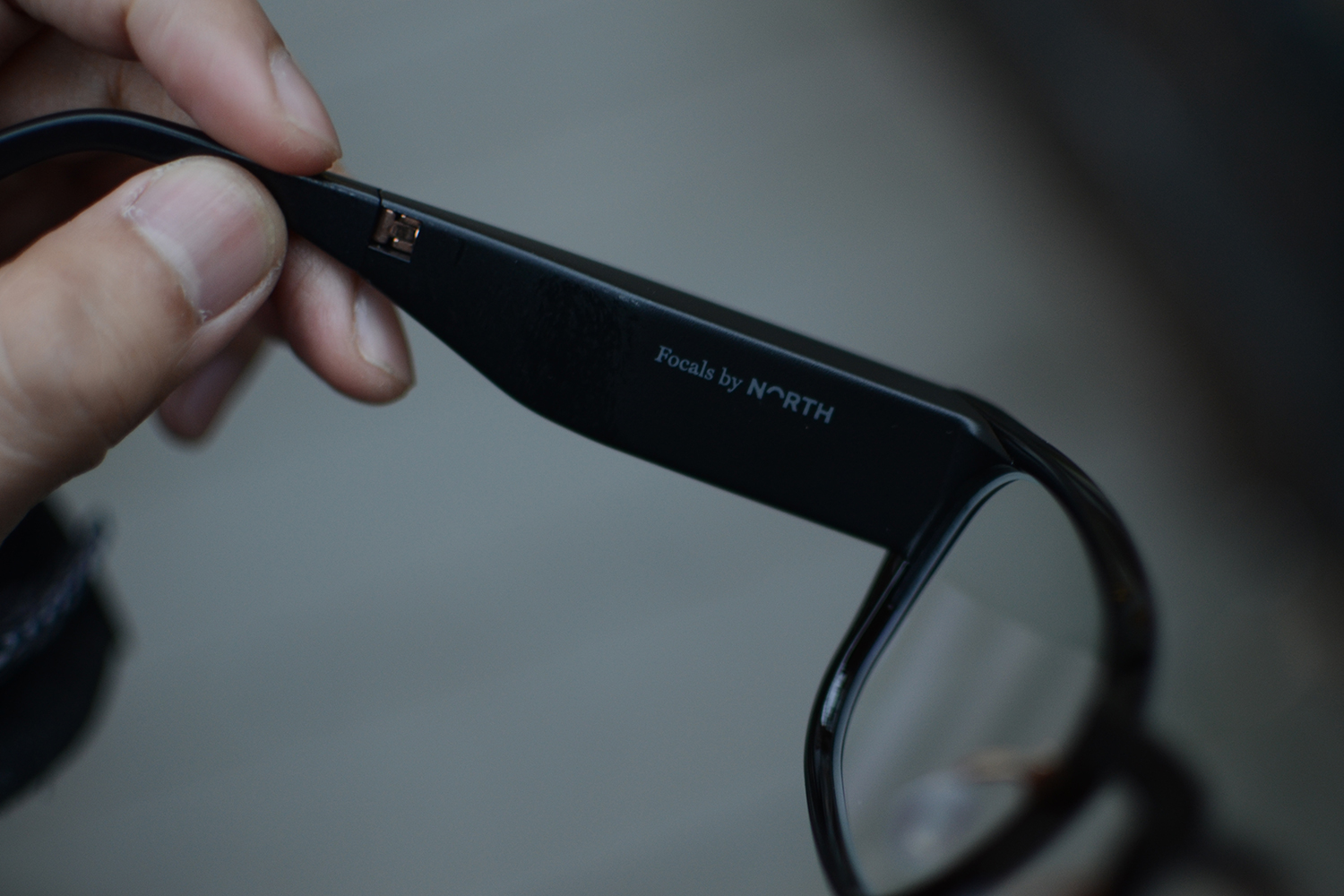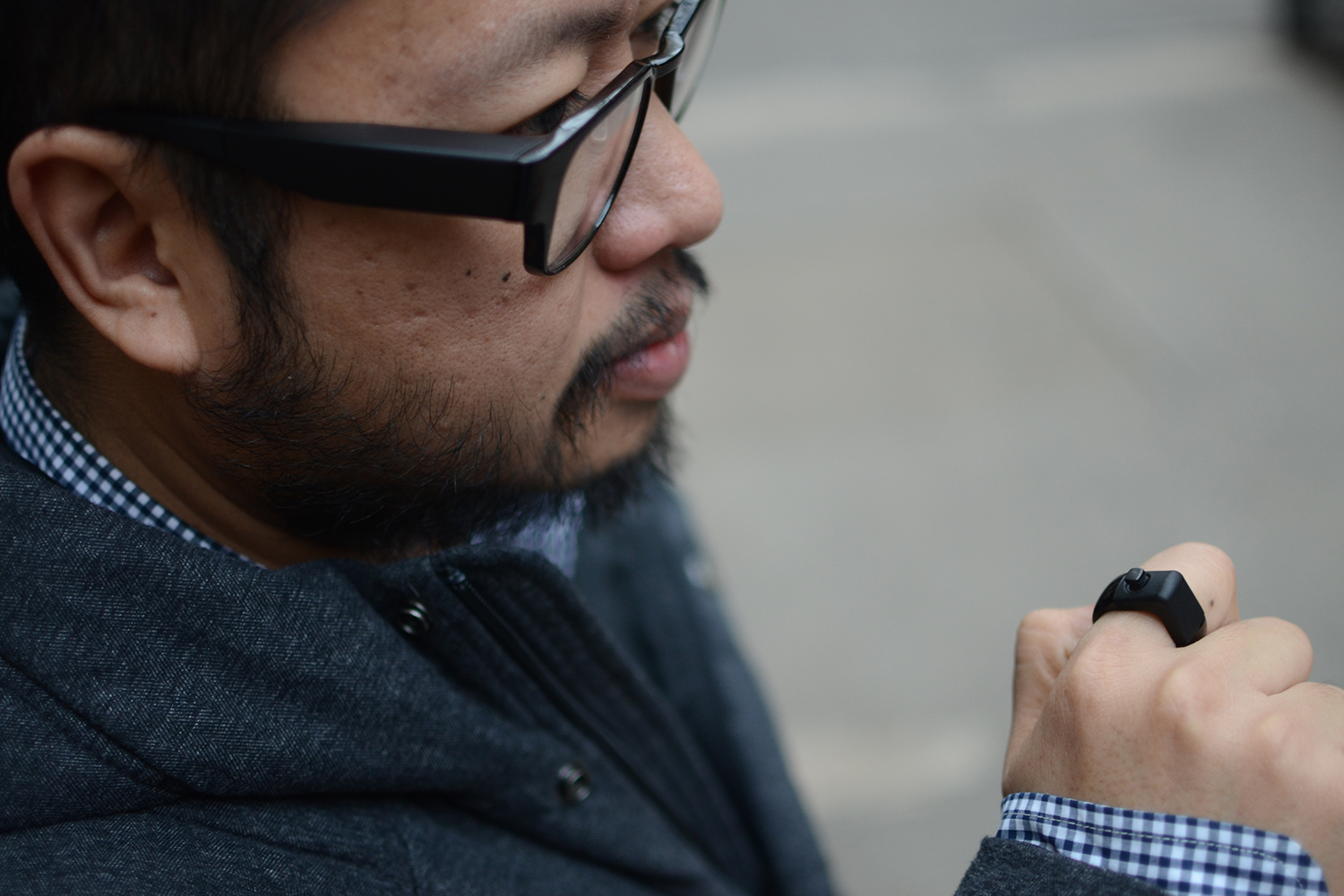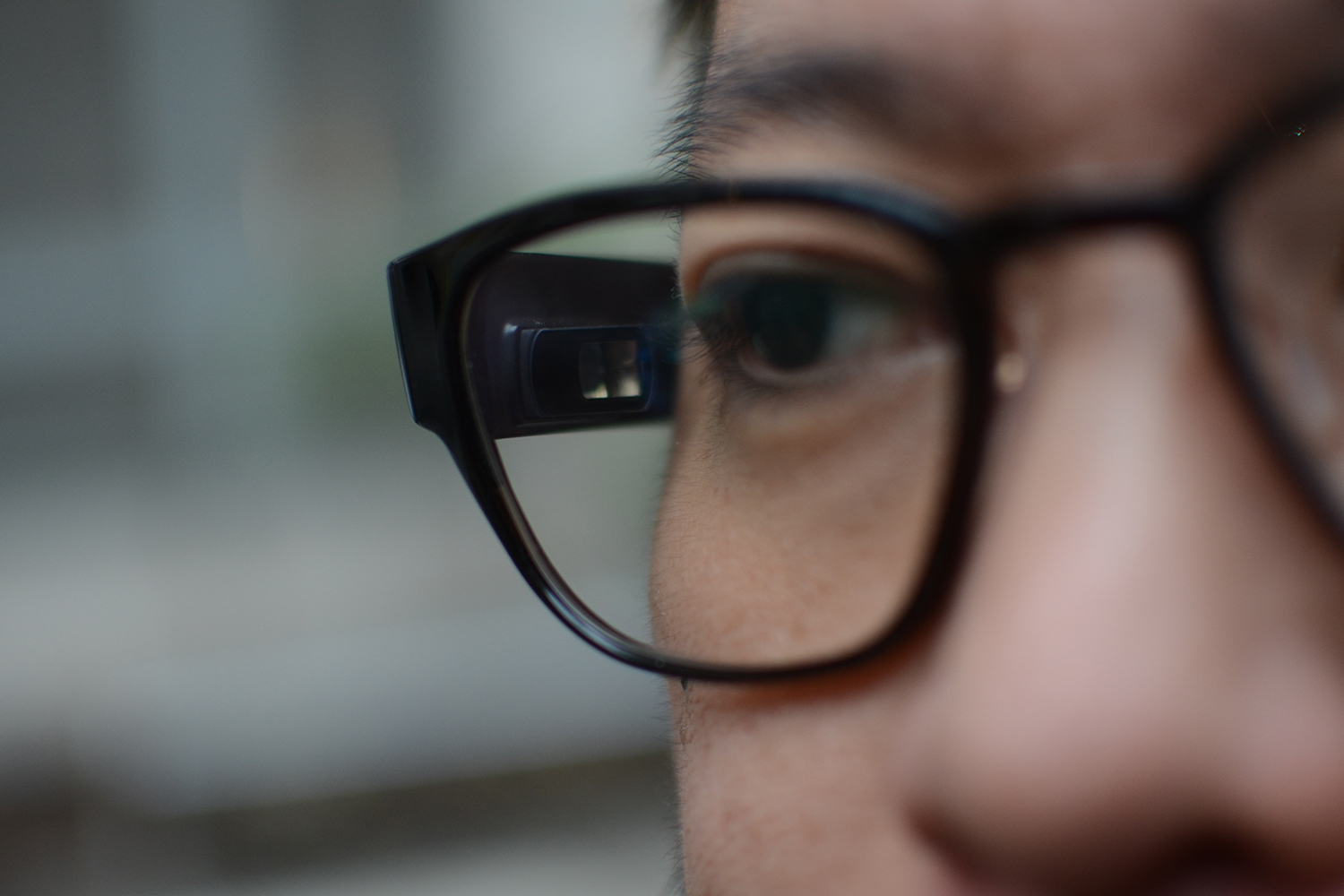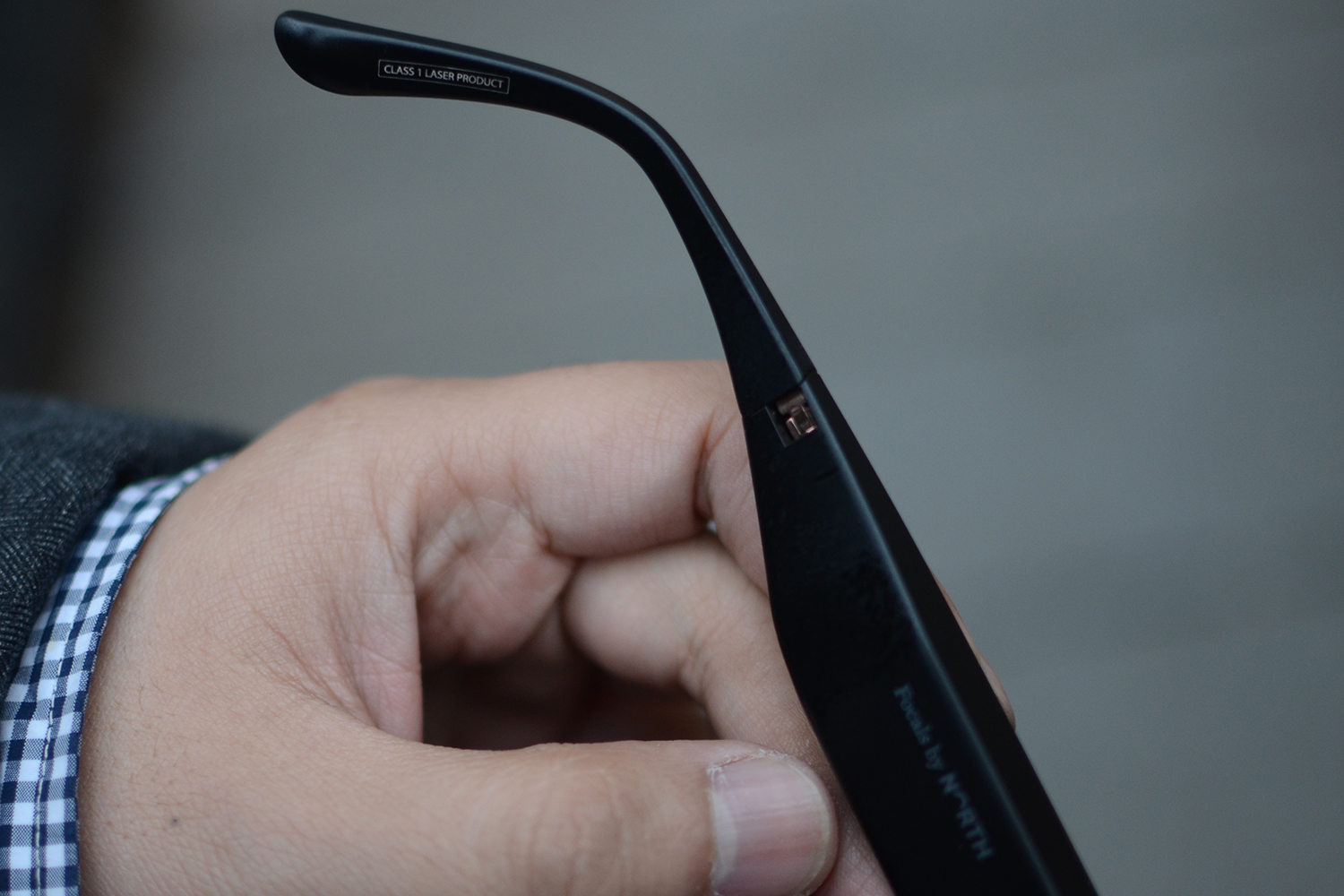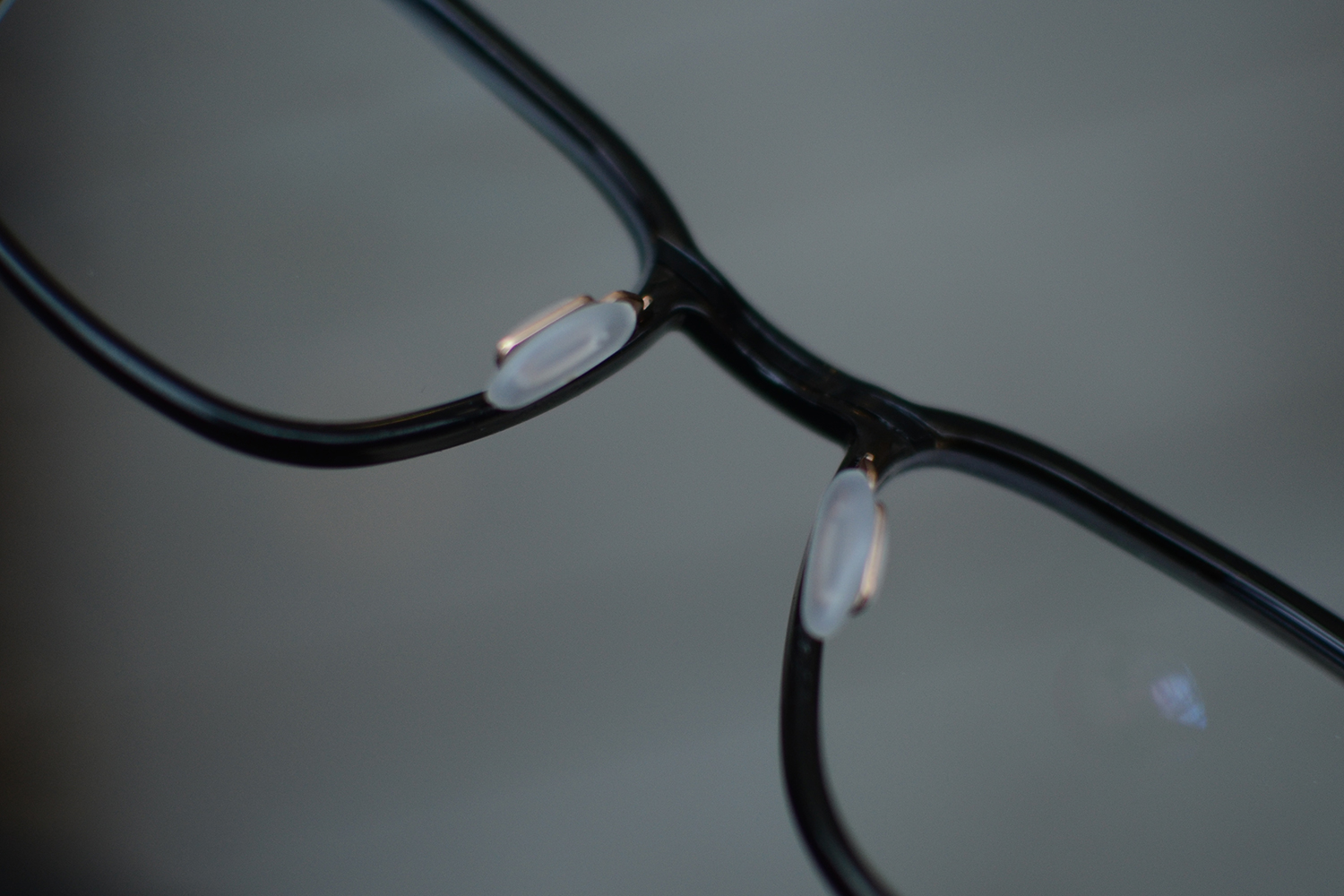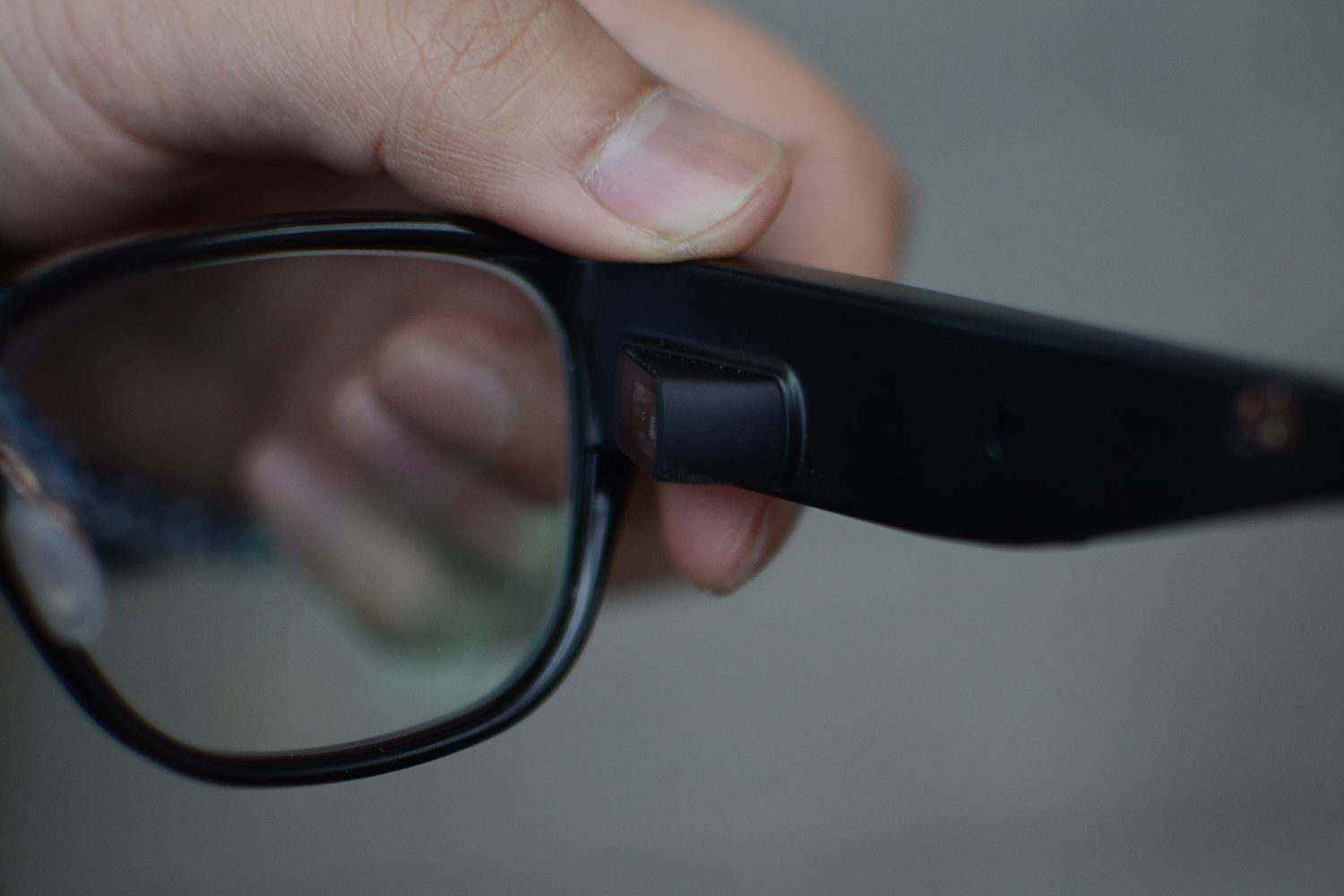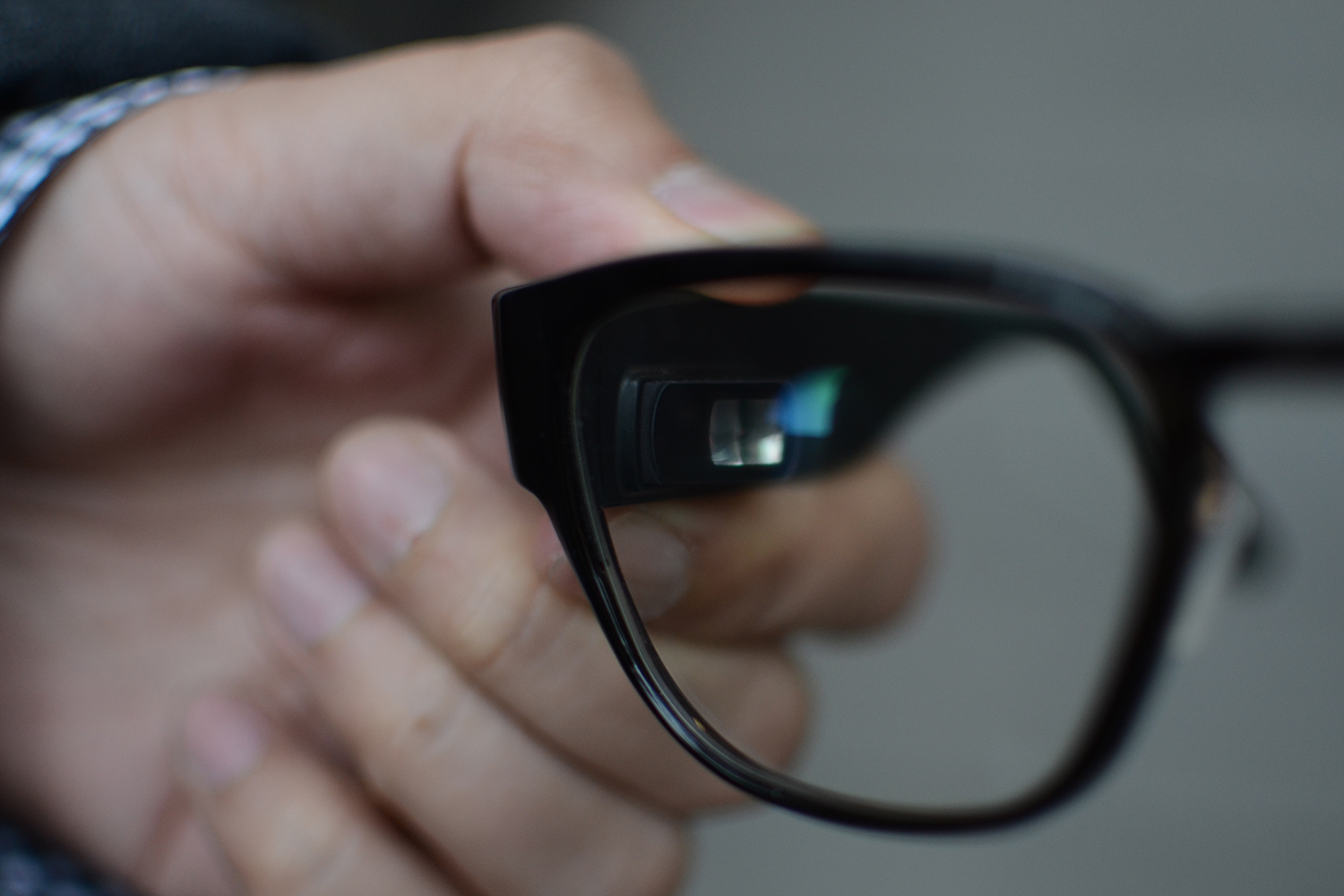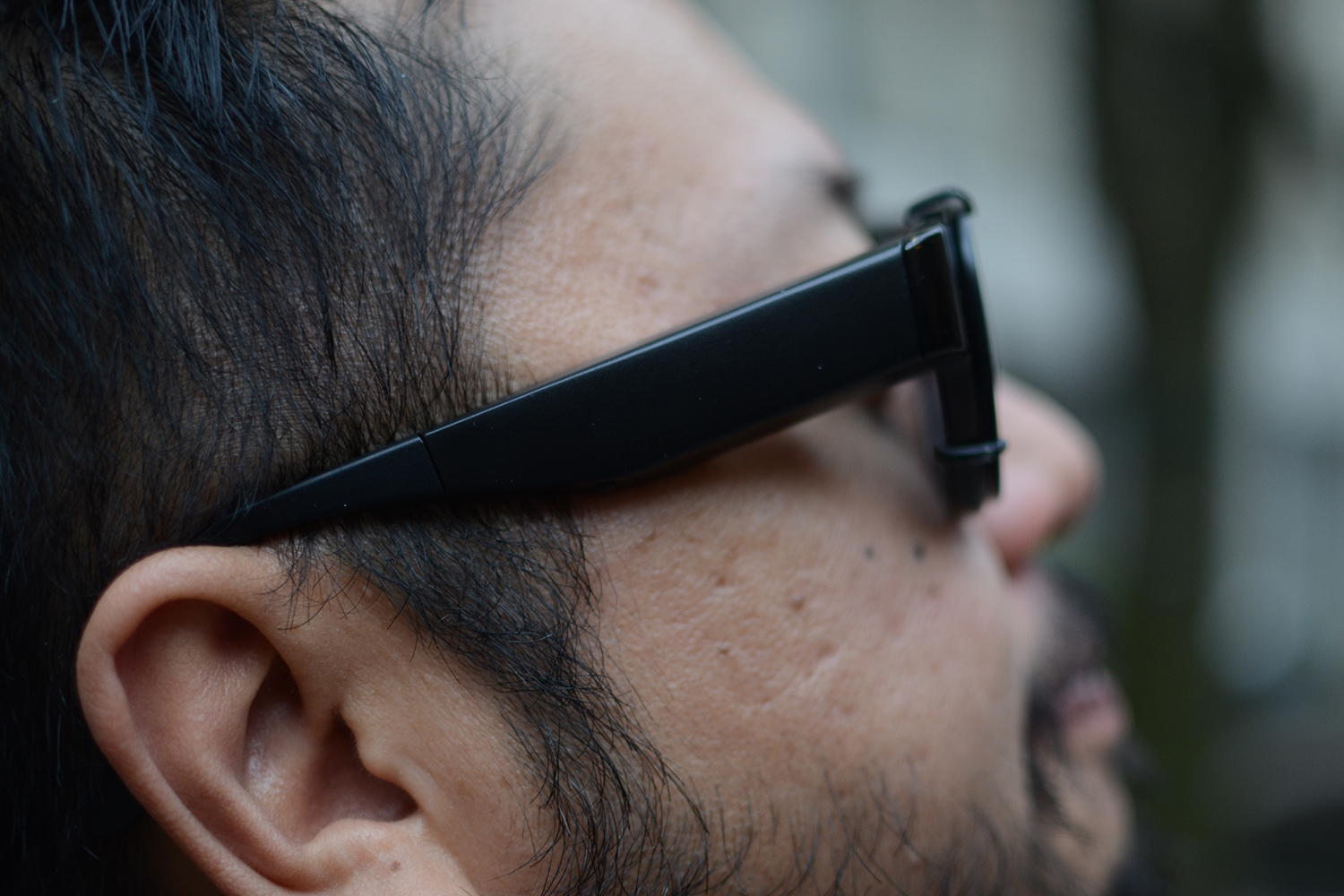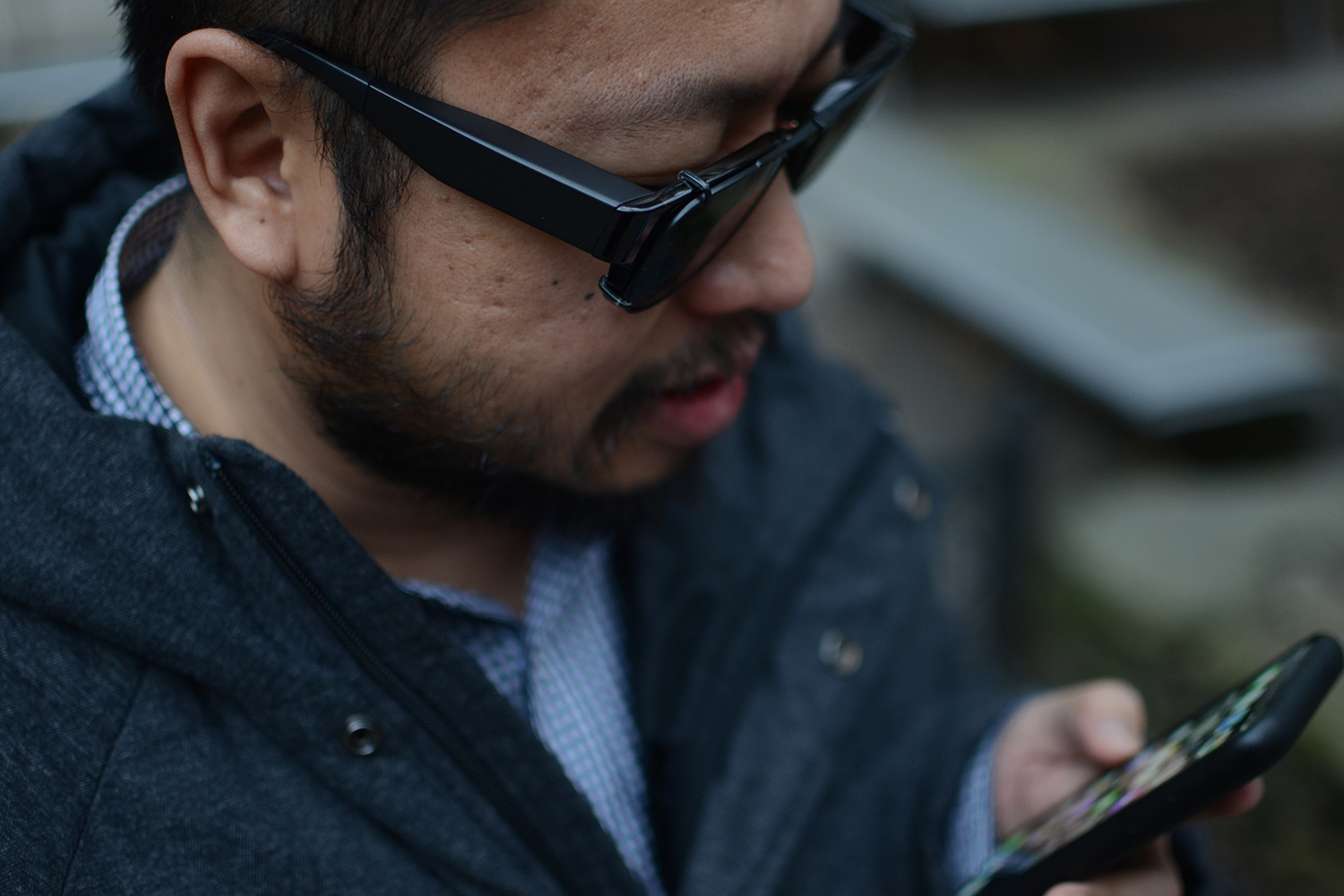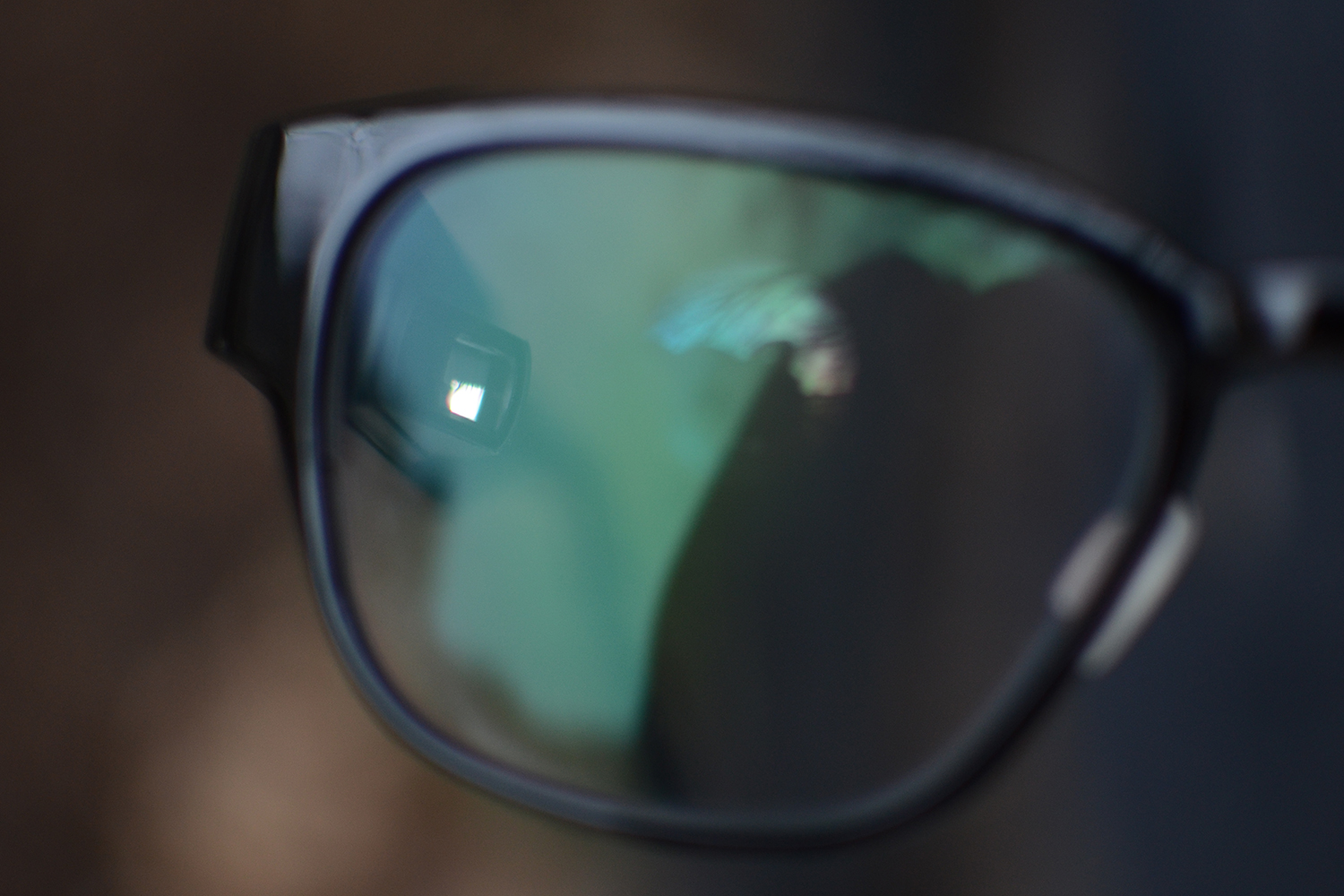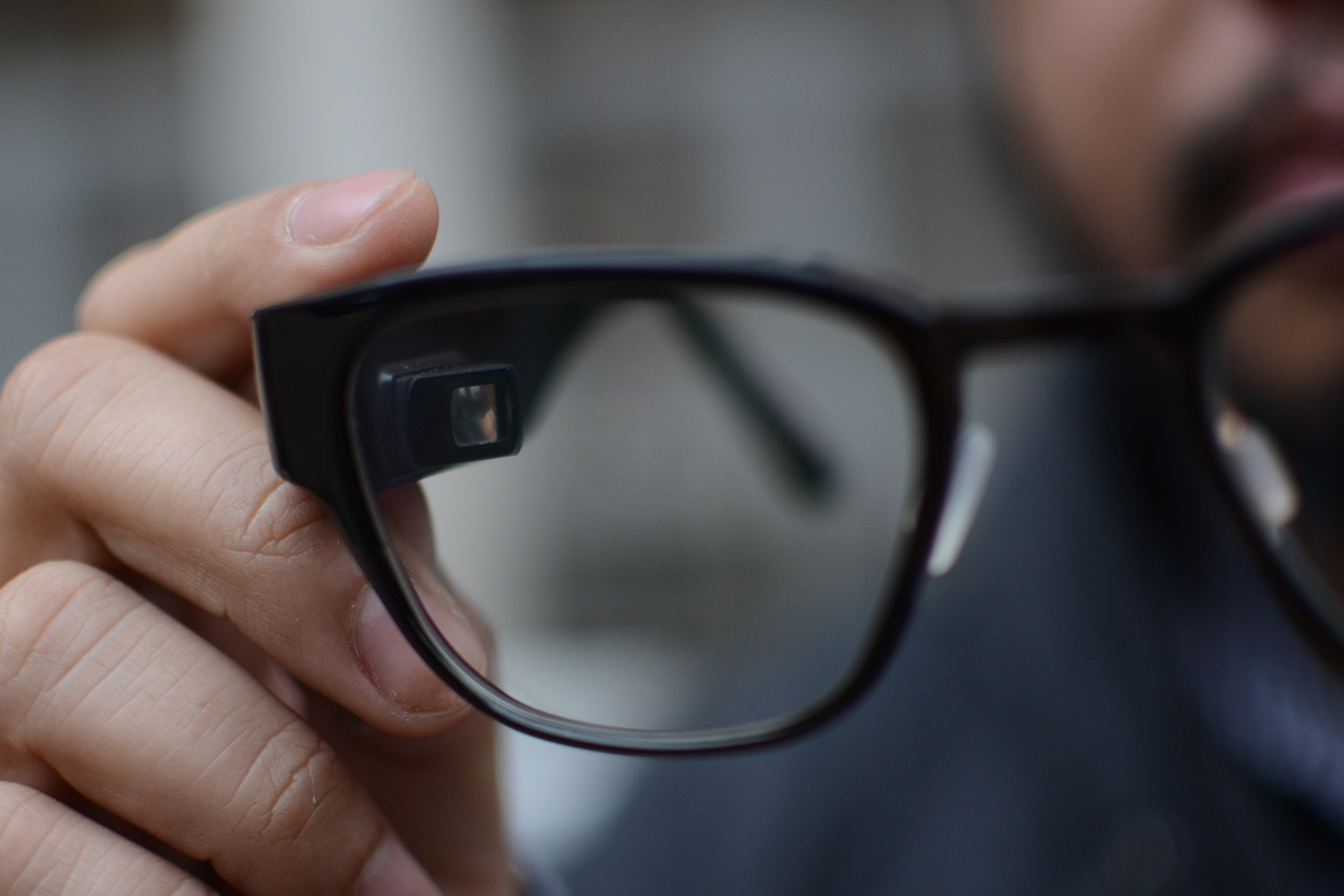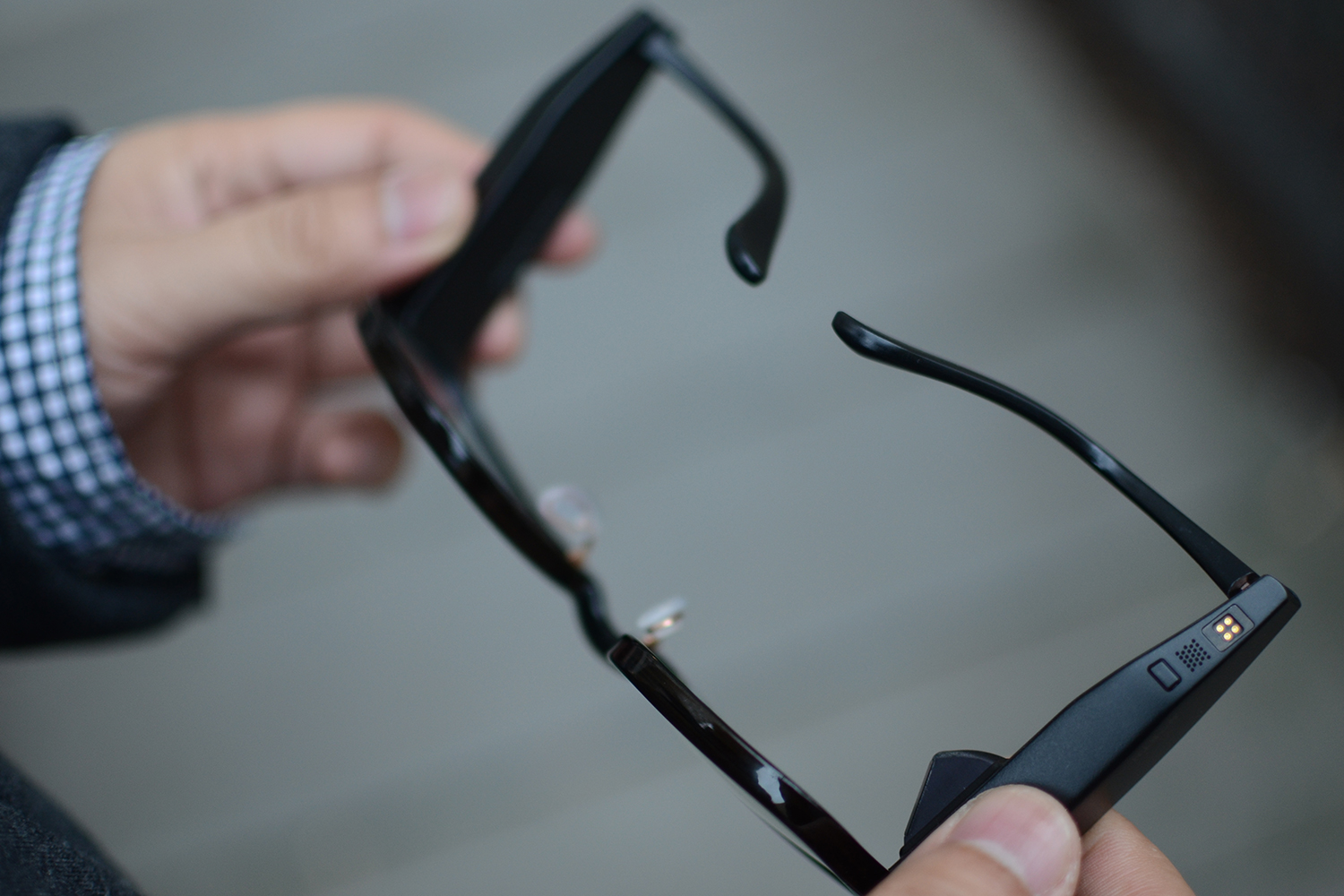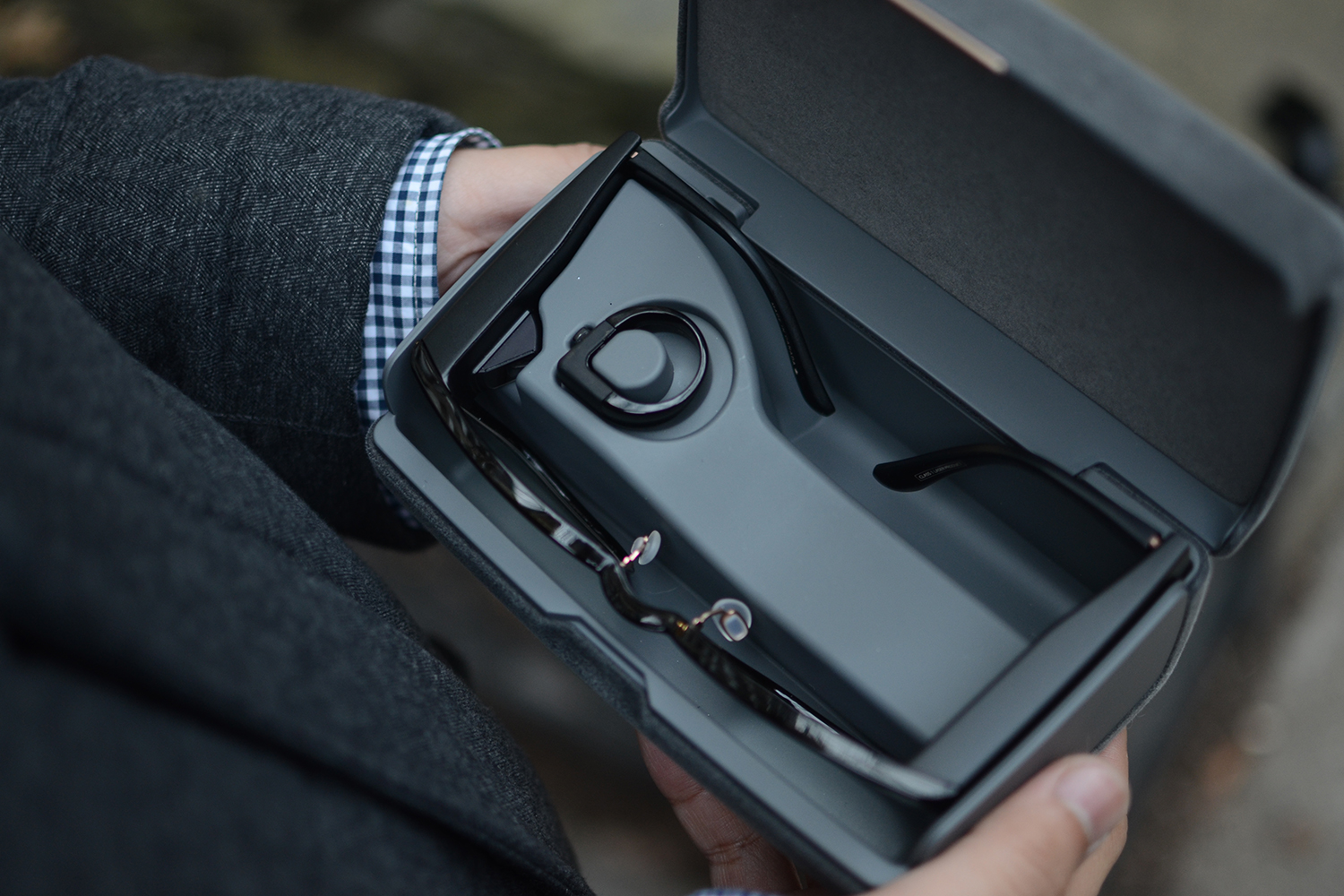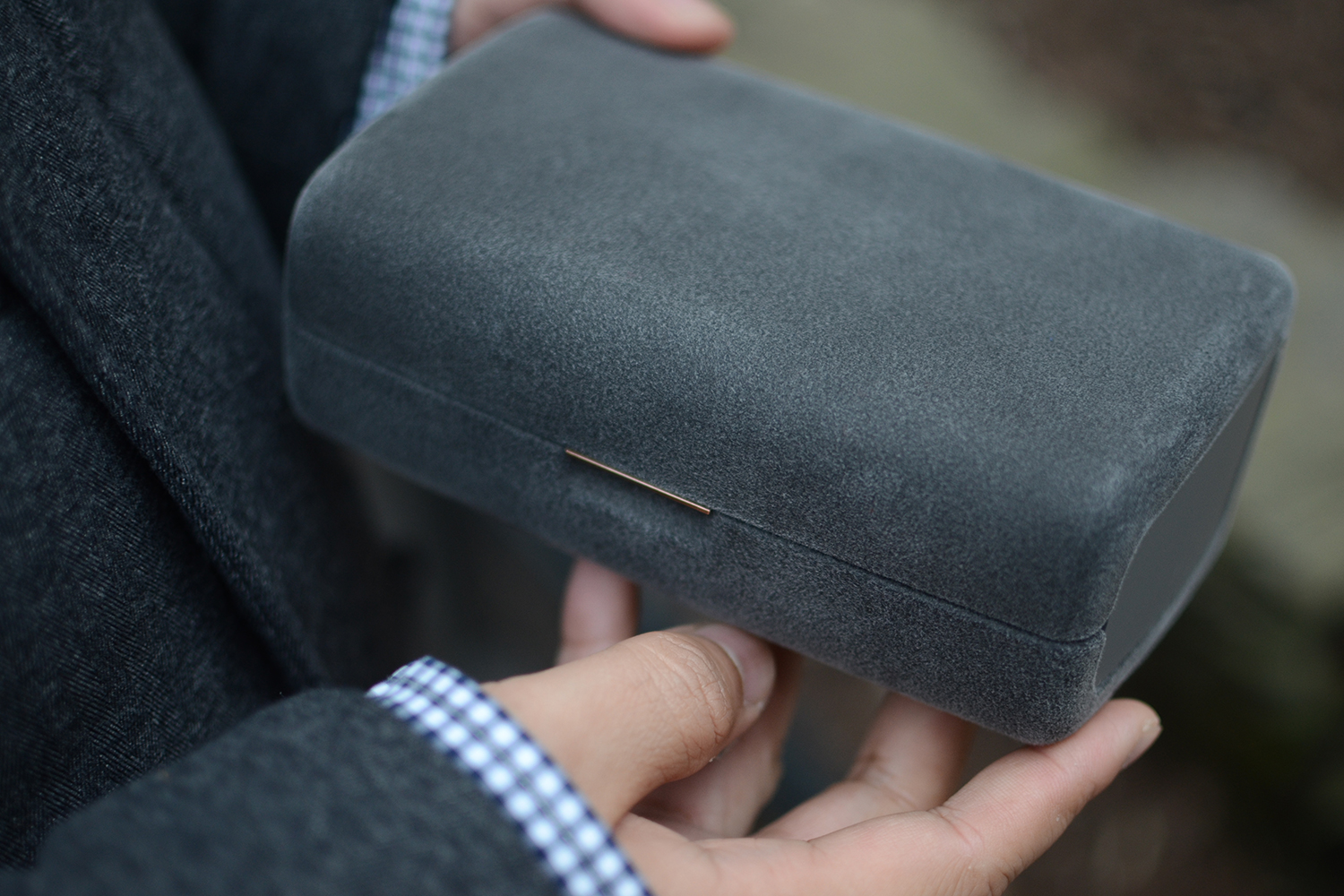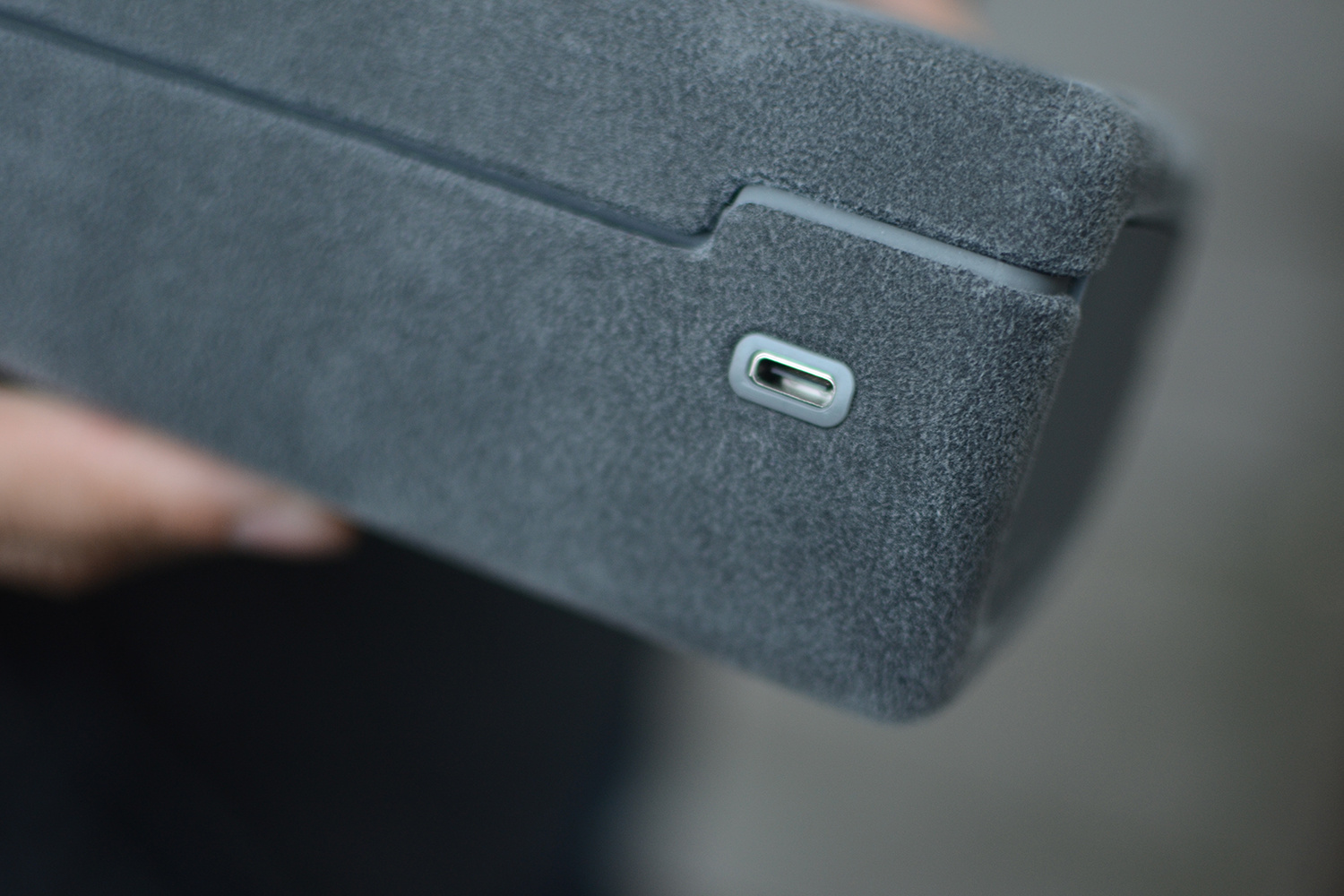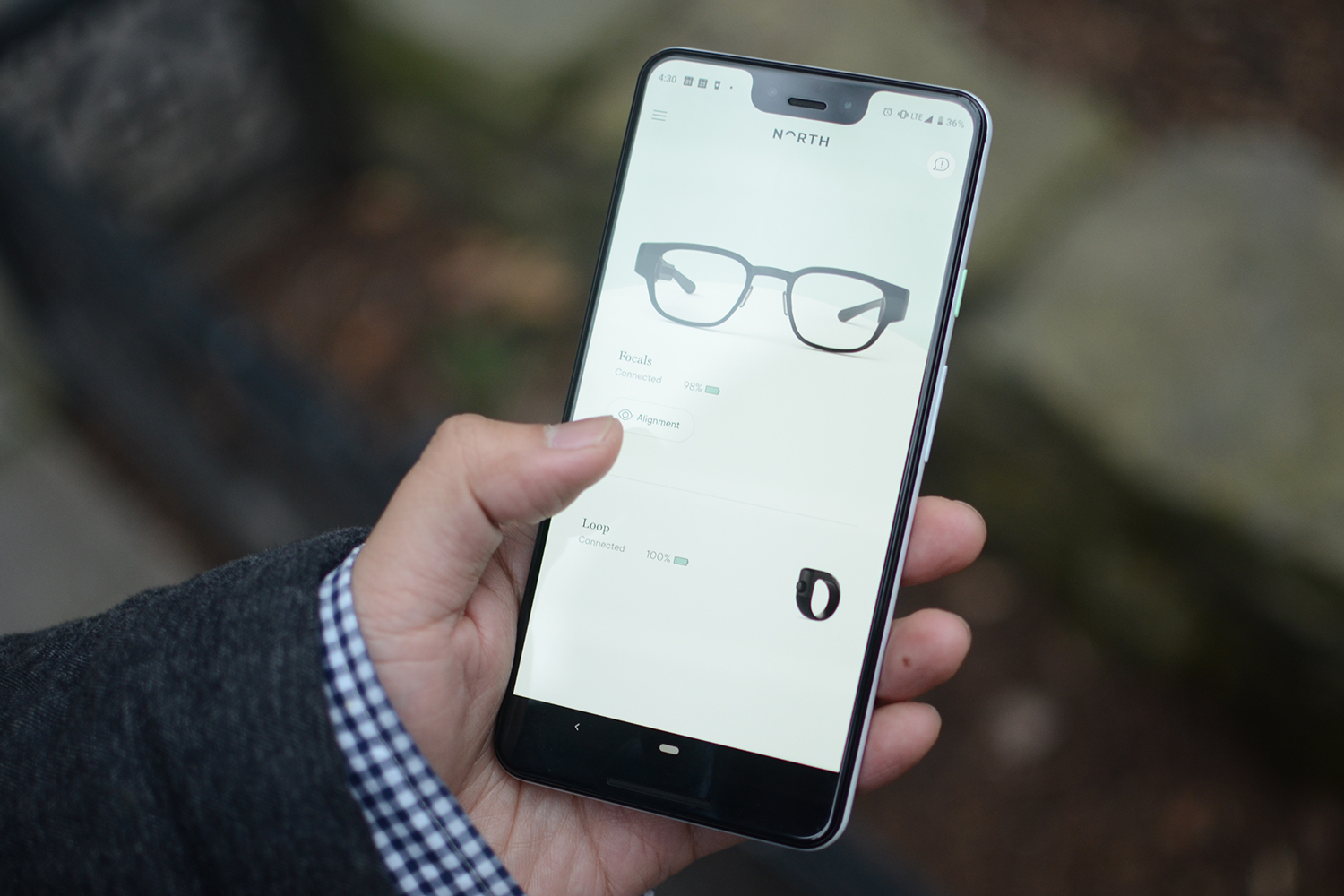Smartglasses dream of a world where you reach for your phone less. Notifications simply appear in front of you, so you can decide if it’s necessary to disrupt what you are doing and pull out your phone. Yet past attempts have been bulky, awkward, and more annoying than the problem they tried to solve.
North’s Focals, however, are a success. They’re the first smartglasses I want to wear, succeeding where Google Glass faltered. They look great, compared to everything else on the market with similar features, and the software is slick. Like a smartwatch, it serves as an extension of your phone, showing you notifications, the ability to access Alexa and respond to text messages. Imagine doing all that while walking down a busy street in New York, your phone still in your pocket.
North’s Focals feel like magic, and they’ve rekindled the excitement I felt when seeing Google Glass for the first time.
Like normal glasses
Focals look like normal glasses, mostly. That’s an incredible feat. Its closest competitor is the Vuzix Blade, which are bulky, unattractive, and the last thing I want to put on my face. With Focals, I didn’t really mind.
There’s a small projector that juts out of the inner right arm, which is one of the few design features that gives away the tech inside. The projector shoots light onto the lens, which reflect specific wavelengths that allow your eyes to see the software interface.
If the inner projector doesn’t give Focals away as smartglasses, the arms will. They’re quite thick, and anyone who looks closely will notice they’re odd. It’s our least favorite part of the glasses, but it’s necessary to house the hardware and battery. The thick arms also mean you can’t fold them like normal glasses — they fold about halfway — which makes storing Focals in anything other than the included charging box awkward.
Focals has rekindled the excitement in smartglasses I felt seeing Google Glass for the first time.
Still, not everyone will notice the glasses are “smart.” My family and close friends were quick to judge them, commenting on the massive arms and unusual proportions. Those who paid less attention didn’t notice until after a few minutes into a conversation, if at all. But more importantly, Focals didn’t draw unwanted attention when worn in public. I didn’t worry about being called a “Glasshole.” Strangers didn’t notice the glasses, and there’s no camera on Focals, which helps the wearer and others maintain privacy.
Social discomfort will come down to the wearer. I didn’t feel awkward using Focals. They’re front-heavy, so my nose often felt a touch sore after wearing them all day, but I otherwise felt fine. They started to fade into the background, and eventually felt no different to wear than a normal pair of glasses.
Normal outside, smart inside
Normal, that is, until I received a notification. Then the glasses came to life, looping me while I continued my daily routine.
Focals’ interface is simple, colorful, pleasing to the eye, and resembles something out of Netflix’s Maniac. It shows notifications from an iOS or
All of this is controlled not by waving your hands on the sides of the glasses or voice interaction, but with a separate accessory called the Loop. It’s a ring that has a pointed end, with a small joystick on top. It’s subtle enough that no one has noticed it on our finger yet, though it looks nerdier than Focals. You can move the joystick to navigate through different columns in the interface and tap it to execute actions.
It’s a fantastic way of interacting with the glasses because your hands can stay in your pockets. No one will know you cleared all your notifications or hailed an Uber. No one will see you “using” Focals, which immediately makes them less geeky.
Reply to a text with just a touch
When a notification arrives on your phone, a little chime plays on the arm of the glasses, and the notification text will pop up in front of your right eye. It’s not front and center, but a little off to the right, and it never blocked my view. For now, you can only clear notifications. North promises more interactive options in the future. I’m looking forward to that, as it would further reduce the need to pull out my phone.
Text messages are the only notifications you can respond to through Focals, and that only works on
Smartglasses, in my experience, are the best alternative to taking extreme measures to stop walking and texting.
Alternatively, you can tap the microphone and use speech-to-text. The transcription is accurate, though it occasionally didn’t work in loud environments. I’ve never been a fan of talking to myself, though, so I usually stuck to Smart Texts.
If talking to yourself is your thing, though,
It goes to show how interaction with a device can affect the desire to use it. If it was necessary to tap buttons or wave hands to use Focals, there’s a good chance I’d leave it at home. The ring solves that problem, letting me use the glasses in public without attracting attention.
Custom fit, but only at a store (not so near) you
Focals are custom fit for your face. A visit to a showroom in New York or Toronto for a 3D scan is required to own a pair. The process is quick and easy, but you’ll need to make a return visit to pick up the glasses and ensure the fit is correct. North is opening a mobile popup in Seattle where you can try and buy Focals, and another will arrive in San Francisco soon too. More mobile pop ups will launch around the U.S. starting April, so a good deal more people will be able to try and buy them.

I dealt with fit issues that went unresolved even after a few tweaks by the experts. The glasses sit too low on the bridge of my nose, and while I’ve managed to adjust the glasses in a way that’s still comfortable to wear, the fit could be better.
I had fit issues that have been unresolved after a few tweaks.
You also can’t buy Focals with a prescription – for now, at least. It’s coming very soon, but that’s sure to disappoint anyone who needs glasses for function as well as style. Between the need for a custom fit, and the lack of prescription lenses, immediate availability is a real issue.
Otherwise, the lenses have the standard features you’d expect from modern glasses, including an anti-reflective coating, ultraviolet protection, a scratch-resistant coating, and a water-repellent coating.
Battery life and charging
Because my pair of Focals didn’t have prescription lenses, I often couldn’t wear them all day. Instead, I wore them during my commute and during lunch breaks when I went out of the office. That’s around two hours and 15 minutes per day. My Focals managed to last for three days on this schedule before they had to be recharged.
North claims 18 hours of battery life with average use, and from our tests, I think the glasses should easily last you a full day from when you wake up and until you go to bed. If it’s about to die during the day, you can pop it back into the charging box, which doubles as a power bank and carries enough juice for three full charges. There’s a USB-C port at the back of the box for when you need to juice it back up.
The charging box looks nice and is pleasant to the touch, but I wish it wasn’t bulky. It takes up a lot of space, so I often left it at home and cautiously put the glasses in my jacket pocket.
We’ll be doing longer-term testing when we receive prescription lenses for our Focals.
Focals will renew your faith in smartglasses. For a price.s
North’s Focals are the smartglasses you’ve envisioned wearing since Google Glass. They have the best design I’ve seen so far, and genuinely useful features. I loved quickly looking off to a side to check the importance of a notification instead of pulling out a

The thick arms and large size may be off-putting to some. Thankfully, the price isn’t as hefty as it once was. Initially North sold the Focals for $1,000, but the price for the standard, non-prescription glasses has been brought down to a cool $600, which is much more manageable (though still pricey). If you want prescription lenses, it will cost $200 more, and opting for round frames, premium lenses, or different finishes will cost $100 each. The price has made the device far more accessbile, but it’s still a gadget that appeals most to early adopters. Nevertheless, Focals are an important milestone in the history of smartglasses, and I can’t wait to see how they improve in the coming years through software, and eventually second generation hardware.
Don’t lose faith in smartglasses. The dream is still alive.

